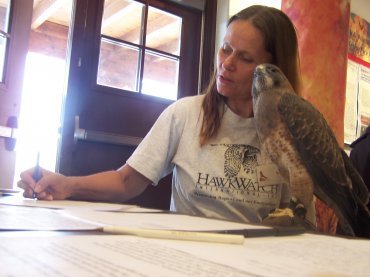Write Letters and Make Calls to Influence Decision Makers
Letters, whether they’re addressed to the editor of a newspaper, members of Congress, or key people in wildlife and land management agencies, are an effective way to show that you care strongly, are paying attention, and are holding decision-makers accountable for lobo recovery.
Your letter will go directly to editorial staff or government officials. We do not have access to your letter and cannot review it.

Letter to the Editor
This is your letter, so write what you think or feel about wolves and wolf management. However, here are a few suggestions for ensuring your message gets through clearly:
- Stress that you believe Mexican gray wolves are an important part of the Southwest’s ecosystem.
- Ask your fellow citizens to speak up in support of Mexican gray wolves.
- Encourage public officials (by name) to support the U.S. Fish and Wildlife Service’s actions to keep wolves in the wild and to develop a new Recovery Plan based on the best available science.
- Share the management changes that would aid in recovery.
- Include your connection with wolves and why the issue is important to you.
- Keep your letter under 300 words.
- Provide your name, address and phone number; your address and phone number will not be published with your letter, but they are usually required for confirmation in order to have your letter published.
Editors in Arizona and New Mexico
- Arizona Republic
- Albuquerque Journal
- Santa Fe New Mexican letters@sfnewmexican.com
- Arizona Daily Star
- Arizona Daily Sun
- Las Cruces Sun-News letters@lcsun-news.com
- Silver City Sun News editor@scsun-news.com
- Silver City Daily Press dthompson@cybermesa.com
- White Mountain Independent mknaub@wmicentral.com
- Prescott Daily Courier
- Salt Lake Tribune letters@sltrib.com
Regional/National:
Write or Call Elected Officials & Agency Representatives
We have a list of Arizona and New Mexico elected government officials and agency representatives here.
For District offices and information about elected officials outside of Arizona & New Mexico https://www.govtrack.us/congress/members.
Suggestions
Hold the US Fish and Wildlife Service accountable for achieving its reintroduction project objectives by doing the following:
- Create a new plan for recovery to replace the antiquated one developed in 1982.
- Provide wolves greater protection by rescinding the experimental non –essential designation.
- Allow wolves to roam freely, just as other wildlife are permitted (including wolves elsewhere).
- Improve genetic diversity in the wild population by reintroducing new wolves into the wild.
- Continue to keep wolves in the wild to ensure survival and intact packs.
Support non-lethal options for reducing wolf-livestock conflicts:
- Using temporary electric fencing, range riders, guard dogs and other non-lethal means of preventing livestock predation
- Requiring livestock owners to remove dead livestock from public lands or render the carcasses inedible (by applying lime) to prevent wolves from being attracted to livestock
- Permanently retiring grazing allotments when permits are abandoned or voluntarily ceded back to the U.S. Forest Service
- Offering incentives to livestock owners, such as voluntary purchase agreements, to permanently retire grazing allotments within the wolf recovery area, especially in areas of high conflict




